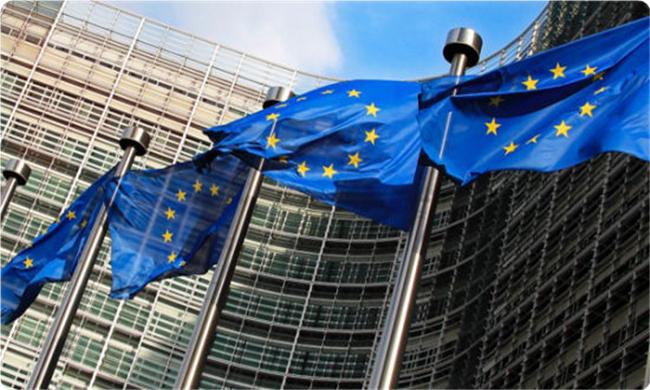Since the first weeks of the invasion of Ukraine, the question has been on the minds of all politicians: can the European Union do without Russian gas, reports French newspaper L'Express on May 9. Being highly dependent on natural gas, the EU has not imposed any official restrictions on it - unlike on oil and coal - but has urged its member states to reduce imports and find other sources of supply. This is because Moscow used the floodgates as a retaliation for the sanctions: supplies to Europe were gradually reduced until the Nord Stream gas pipeline was completely shut down last summer. Small amounts of gas still transit Ukraine via the "Friendship" pipeline, mainly to Hungary and Austria, and LNG continues to be shipped by tanker from Russia.
But the numbers speak for themselves: Russia's share of monthly gas deliveries to the EU falls from more than 50% in 2021 to 37% in March 2022, and then to less than 13% by November. With the development of renewable energy sources, the EU-27 may abandon natural gas forever starting in 2028. A report released by the Oxford Sustainable Finance Group on the 9th reached this conclusion and stated that this would bring ecological (abandoning a fossil energy source), strategic (increasing energy autonomy) and economic benefits: 90% of the investment costs could be recovered within 30 years.

In order to achieve this goal, the EU-27 must obviously pay up front. The investment will be up to 811 billion euros. The vast majority of this (706 billion) will be spent on renewable energy and the remainder (105 billion) on the deployment of heat pumps.
This scenario is expensive compared to the status quo scenario, which is estimated to cost €299 billion. But Oxford Sustainable Finance Group notes, "We expect that replacing Russian gas with green technologies will save €238 billion in operating costs over the next 30 years, almost 50% of the additional investment required." Even better, "under reasonable assumptions about gas prices, we estimate this could be as high as 92%."
Laurence Tibiana, CEO of the European Climate Foundation, notes, "This analysis underlines that renewable energy and energy efficiency is not a distant dream, but can be a quick, safe and ethical way to get rid of expensive Russian gas." Policymakers should therefore accelerate the pace on several fronts: scaling back approval times for renewable energy deployment, developing these sectors and conducting large-scale training.
The report also looks at four countries (France, Germany, Italy and Spain) whose reliance on Russian gas varies widely. "France will try to achieve a switch from Russian gas in heating by 2026," but to switch in the electricity mix will come after that. In Germany, the situation is the opposite: the change in the electricity mix will be in 2027, while the change in heating will be in 2030. Therefore, "Germany should deploy heat pumps more aggressively" and invest more in wind power.

In the case of Italy, "the country could completely move away from Russian gas in 2028 if it can increase its current low target for onshore wind". Spain would achieve this goal a year earlier, in 2027, and would not need to rely on offshore wind. The report makes clear that "because of the country's low reliance on Russian gas and its warmer climate, resulting in structurally low heating demand."
But one uncertainty remains: will the EU show enough "boldness and ambition" to stay the course? The European Commission's plan to restructure Europe's energy supply, proposed a year ago, amounts to a signpost that must now be implemented with determination.

